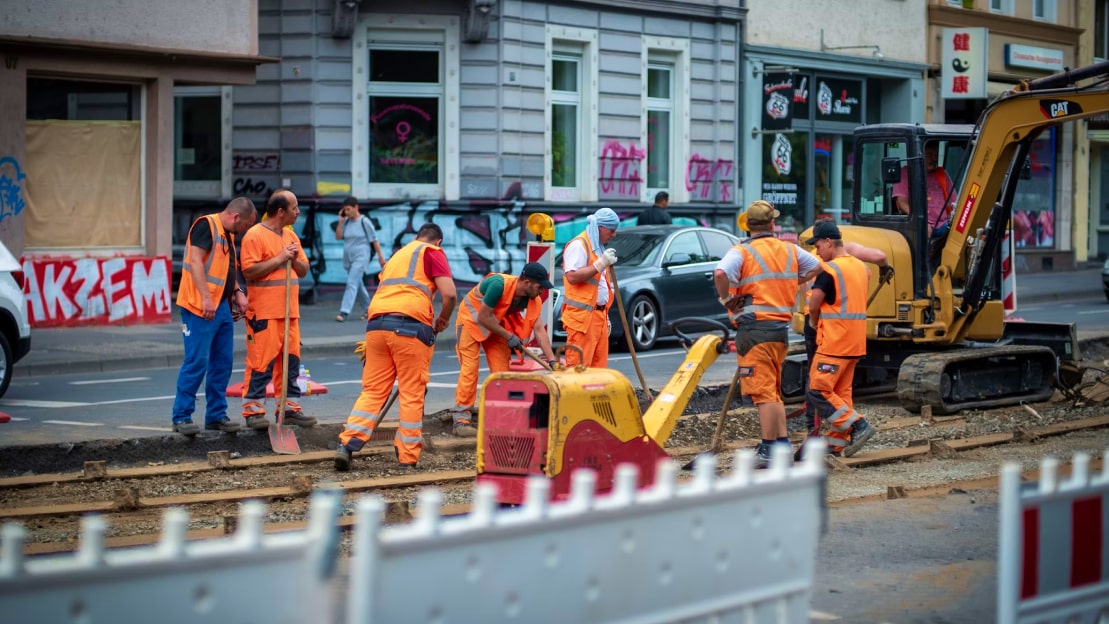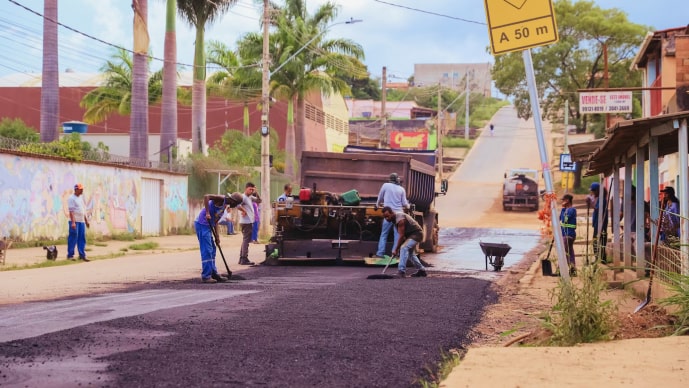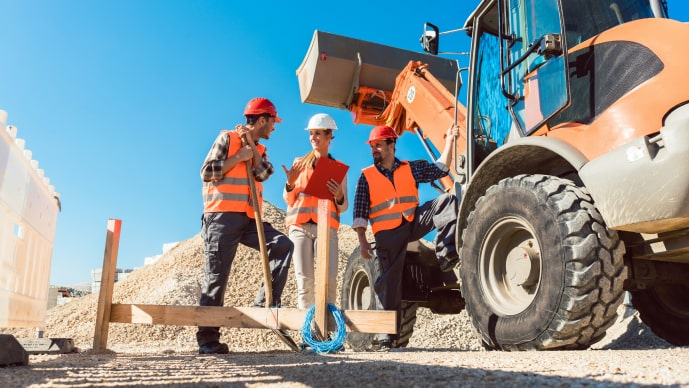Prioritizing Worker Wellbeing For Road Construction Workers

Table Of Contents
Road construction is a demanding industry that involves long hours, physical labor, and exposure to hazardous conditions. Prioritizing the wellbeing of road construction workers is essential to ensure their safety, health, and overall quality of life.
This article explores the importance of prioritizing worker wellbeing in road construction projects, highlighting key strategies to support the overall health of workers in this challenging environment.
The Prioritising Factors of Workers Wellbeing in Road Construction

This is important to ensure workers’ wellbeing and safety beforehand. After all, pursuing your work will only be possible with workplace safety. Below, I will briefly discuss the prioritizing factors of workers’ wellbeing in road construction.
1) Ensuring Workplace Safety
Safety is paramount in road construction, where workers are exposed to numerous hazards such as heavy machinery, moving vehicles, and uneven terrain.
Employers must implement strict safety protocols and provide appropriate personal protective equipment (PPE) to mitigate risks and prevent accidents.
This includes conducting regular safety training, enforcing traffic control measures, and establishing clear communication channels to ensure workers know potential hazards and how to respond to emergencies.
2) Managing Fatigue and Physical Strain
Road construction projects often involve long hours of physical labor in demanding conditions, leading to fatigue and physical strain among workers.
Employers should prioritise measures to manage fatigue and minimize the risk of musculoskeletal injuries. This may include implementing ergonomic work practices, providing rest breaks and hydration stations, and rotating tasks to prevent overexertion.
Working with companies like comfyworkers.com can ensure that proper accommodation is available for however long is needed for workers. Additionally, offering access to onsite medical assistance and rehabilitation services can help workers promptly address any injuries or health concerns.
3) Addressing Mental Health and Stress
The rigorous demands of road construction labor can significantly impact workers’ mental health and overall well-being. Employers must acknowledge the significance of addressing mental health challenges, including stress, anxiety, and depression, among their workforce.
This entails offering access to confidential counseling services, advocating for mental health awareness and education initiatives, and nurturing a workplace culture that prioritizes support and assistance when necessary.
Additionally, fostering opportunities for socialization and team bonding activities can mitigate feelings of isolation and cultivate a sense of unity among employees.
4) Providing Training and Skill Development
Investing in training and skill development is necessary for empowering road construction workers and enhancing their job satisfaction and wellbeing. Employers should offer comprehensive training programs that cover essential skills, safety procedures, and career advancement opportunities.
This may include certifications in equipment operation like using excavator, first aid, and traffic management and ongoing professional development opportunities to expand workers’ knowledge and expertise.
By investing in their workforce, employers can cultivate a skilled and motivated team that is better equipped to handle the challenges of road construction work.
5) Supporting Work-Life Balance
Achieving a healthy work-life balance is fundamental for promoting overall wellbeing and job satisfaction among road construction workers.
Employers should strive to create flexible work schedules that accommodate workers’ personal and family obligations and opportunities for paid time off and vacation leave.
Additionally, promoting a culture of work-life balance through policies that discourage excessive overtime and encourage time for rest and relaxation can help to prevent burnout and improve morale among workers.
6) Comprehensive Safety Training
One of the most important aspects of a safety construction site is to provide comprehensive training and education to every worker.
By familiarising workers with safety hazards, safety protocols, and proper equipment usage, several other companies would significantly reduce the risk of workplace accidents.
Regular training sessions and other safety drills should be conducted to keep workers updated and reinforce other safety practices.
7) Personal Protective Equipment

Ensure workers must be equipped with exact and appropriate personal protective equipment to minimise the risk of injuries. Safety goggles, gloves, hard hats, and high-visibility clothing are some essential PPE items that must be provided.
After all, the workplace authority must ensure they have always worn these safety clothes. Regular inspections and replacements of such damaged or worn-out PPE must be carried out for maximum effectiveness.
8) Regular Equipment Maintenance
Malfunctioning or poorly maintained equipment can pose severe risks to several other workers. All tools, machinery, and equipment should be kept current and have regular maintenance checks to minimize malfunctions.
Several other workers also get the training to report and identify equipment issues quickly. A clear line of communication between management and employees is vital to ensure that workers would address this concern.
9) Efficient Material Storage
If you are storing any equipment in a disorganised and haphazard way, this can lead to multiple injuries and several other accidents. Above all, construction companies should incorporate the proper material storage methods that include stacking materials and using exact supports.
It also ensures the clear pathways. Also, workers must be provided adequate training on such safe material so they can easily handle such techniques, including carrying, lifting, and unloading procedures.
10) Reduce Exposure to Hazards
There are multiple other construction sites where you must handle potential hazards such as noise, chemicals, dust, and other hazardous materials. Above all, implementing these measures will minimise exposure to such hazards, which is essential for workers’ wellbeing.
With the help of taking action, you can easily enclose work areas, get ventilation, and also use regular dust control measure equipment.
These can reduce the risk of several other respiratory issues. In addition, regular monitoring of such noise levels and the usage of hearing protection can also be functional for workers’ hearing wellbeing.
What are the five essentials for workplace mental health and wellbeing?

After all, multiple essentials are quite important for workplace mental health and wellbeing. Below, I will discuss the five essentials for workplace mental health and wellbeing.
1) Protection From Harm
Ensure you are prioritizing workplace psychological and physical safety. Ensure the workplace authority has enabled adequate safety. The operational equity, diversity, accessibility norms, and programs are also there.
2) Work-Life Harmony
Another essential you must know for workplace mental health and wellbeing is to provide more autonomy of how work has been done. Ensure you have made schedules as predictable and flexible as possible.
3) Connection and Community
Ensure you have created cultures of belongings and inclusions.
4) Opportunities for Growth
Another essential for workplace mental health and wellbeing is offering quality education, mentoring, and training.
5) Mattering At Work
This provides a living wage. Above all, this can also be beneficial to engage workers in workplace decisions.
In Conclusion
Prioritising the wellbeing of road construction workers is vital for creating a safe, healthy, and productive work environment.
By ensuring workplace safety, managing fatigue and physical strain, addressing mental health and stress, providing training and skill development, and supporting work-life balance, employers can empower workers to thrive in their roles and contribute to the success of road construction projects.
By investing in the wellbeing of their workforce, employers not only fulfil their moral and legal obligations but also foster a culture of care and respect that benefits both workers and the industry as a whole.
I hope you liked this article!
Learn More About:

























